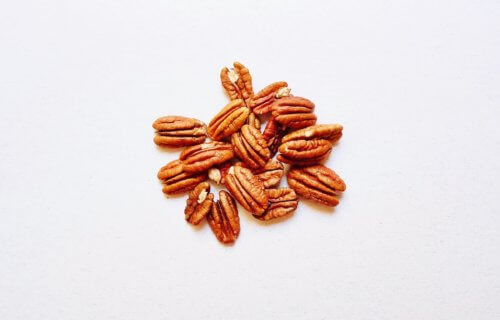ATHENS, Ga. — Adding more pecans to your diet can dramatically improve cholesterol and fat levels, leading to better heart health, a new study finds.
Researchers from the University of Georgia find people at risk for heart disease who ate pecans during an eight-week trial displayed “significant” improvements in total cholesterol, low-density lipoprotein (LDL) or “bad” cholesterol, and triglycerides — which are fats the body stores in cells.
The team saw an average drop of five percent in total cholesterol and between six and nine percent in LDL among participants who ate the nuts as part of their daily diet.
“This dietary intervention, when put in the context of different intervention studies, was extremely successful,” says study co-author Professor Jamie Cooper in a university release. “We had some people who actually went from having high cholesterol at the start of the study to no longer being in that category after the intervention.”
The research team finds these nuts beat out 51 exercise plans designed to lower cholesterol, which reported an average drop of one percent in total cholesterol and five percent in LDL cholesterol.
“The addition of pecans to the diet not only produced a greater and more consistent reduction in total cholesterol and LDL compared to many other lifestyle interventions, but may also be a more sustainable approach for long-term health,” Dr. Cooper adds. “Some research shows that even a 1% reduction in LDL is associated with a small reduction of coronary artery disease risk, so these reductions are definitely clinically meaningful.”
Adding pecans (any way you can) improves health
For the study, researchers assigned 52 adults between the ages of 30 and 75 who were at higher risk for cardiovascular disease to one of three groups. One group consumed 68 grams (about 470 calories) of pecans a day as part of their regular diet. The second group did not add the nuts on top of their normal diet, but replaced other things they ate with the same number of calories in pecans. The third control group did not eat any pecans at all.
At the eight-week mark, participants ate a high-fat meal which allowed researchers to detect changes in the fats and sugars in their blood. Results revealed improvements in the levels of fat in blood among the two pecan groups, while post-meal triglycerides dropped in the group that added pecans. Blood sugar levels were also lower in the group that replaced parts of their usual diet with pecans.
“Whether people added them or substituted other foods in the diet for them, we still saw improvements and pretty similar responses in total cholesterol and LDL cholesterol in particular,” Dr. Cooper explains.
The team says their findings back up previous research which revealed bioactive properties of pecans for possible mechanisms driving the improvements. They added that pecans are high in healthy fatty acids and fiber, both of which contribute to lower cholesterol.
The findings appear in The Journal of Nutrition.
South West News Service writer William Janes contributed to this report.
